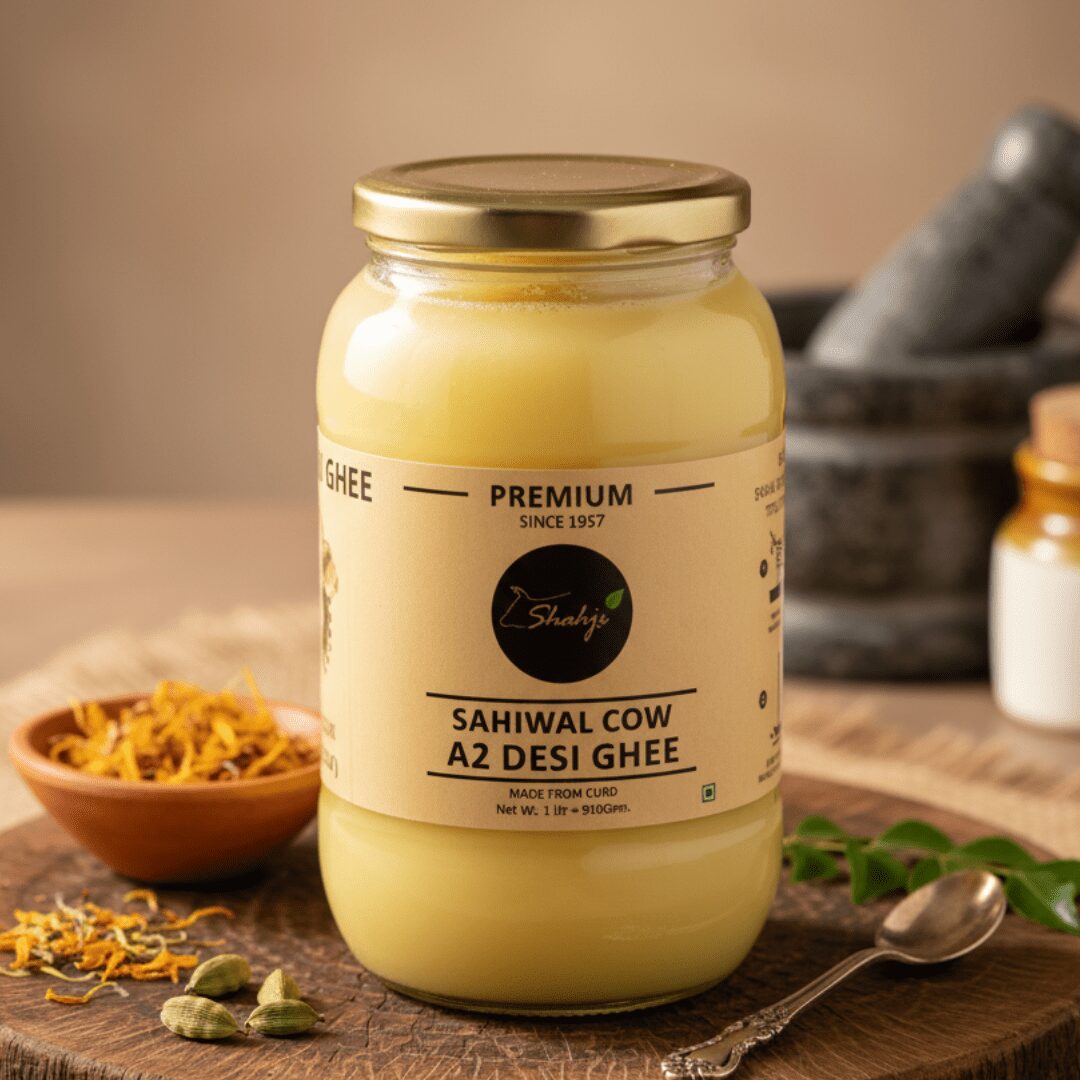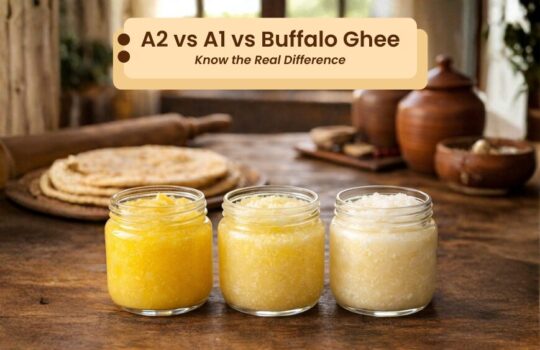A2 ghee and its impact on cholesterol levels: Myth or reality?
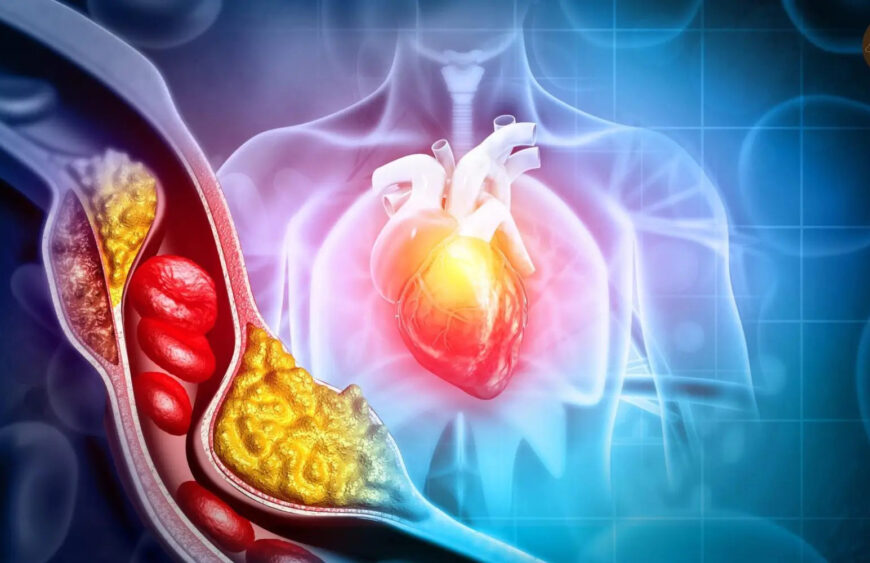
There has always been confusion among people about whether A2 ghee is good for our health or not. People have always been asking this. People are very conscious about ghee because it is related to their health. People always ask whether eating ghee will increase their cholesterol.
People ask this because much such news has come in the market in which it has been told that eating ghee increases cholesterol and can increase heart diseases. But such rumours that are spreading about Ghee is it all true? What does the science say behind this? We should understand this and know the reality of such a rumour.
In this article, we will tell you what is the effect of ghee on cholesterol levels. And whether ghee is good for your heart or not. So let’s get started.
What is A2 ghee?
A2 ghee: A2 ghee is a type of ghee that is made from milk which contains A2 beta-casein protein. Such a type of ghee is made from curd by churning it with a wooden churner called bilona.
What is cholesterol in our body?
Cholesterol is a substance that has a fatty and waxy texture. It plays an important role in the production of cell membranes, hormones, and vitamin D in your body. The cholesterol present in your bloodstream originates from two primary sources: the food you eat and your liver. Your liver is responsible for producing most of the cholesterol your body needs.
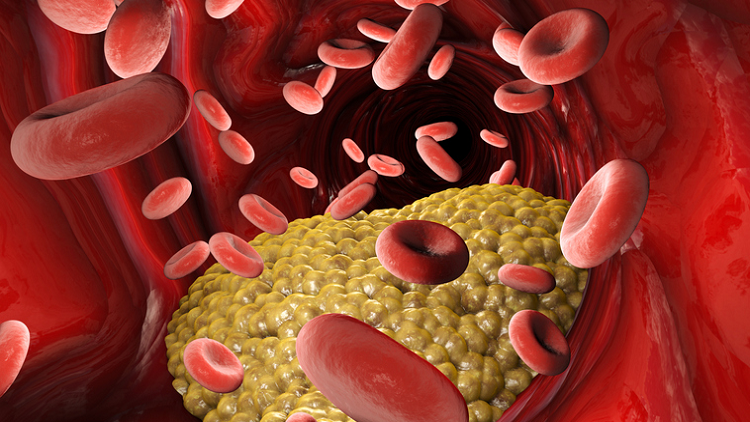
Cholesterol and other fats are carried in your bloodstream as spherical particles called lipoproteins. The two most commonly known lipoproteins are low-density lipoproteins (LDL) and high-density lipoproteins (HDL).
Low-Density Lipoprotein
LDL cholesterol is known as the “bad” cholesterol because it can contribute to the buildup of plaque in the arteries, which increases the risk of heart attack and stroke.
High-Density Lipoprotein
HDL (high-density lipoprotein) cholesterol, sometimes called “good” cholesterol, absorbs cholesterol in the blood and carries it back to the liver. The liver then flushes it from the body. High HDL cholesterol levels can lower your risk for heart disease and stroke.
Impacts of A2 ghee on cholesterol levels
As mentioned earlier, there are two types of cholesterol found in ghee – LDL (bad cholesterol) and HDL (good cholesterol). A teaspoonful of ghee (14 grams) contains approximately 40 mg of cholesterol. However, the cholesterol present in ghee is not harmful.
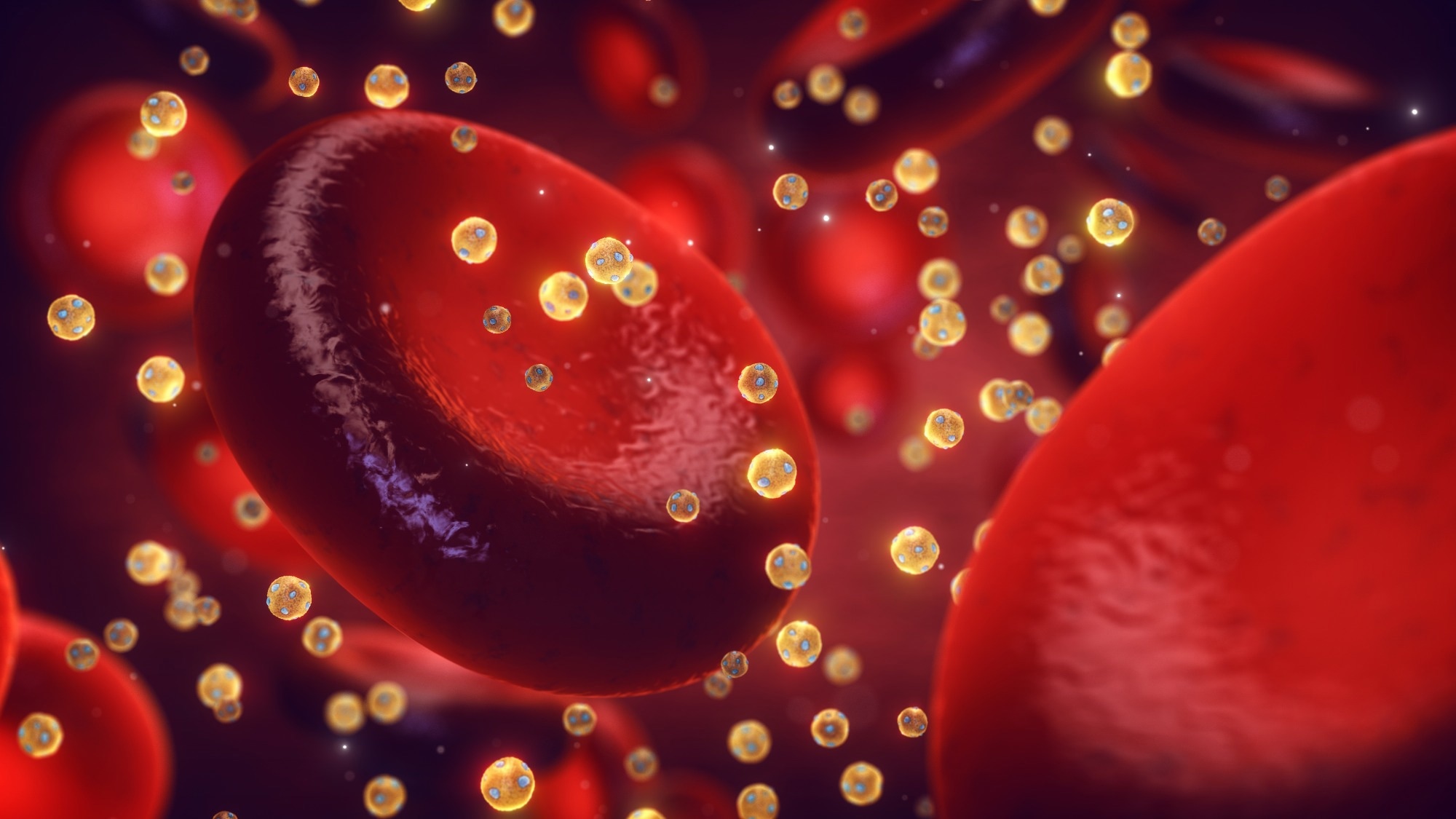
It consists of good cholesterol which removes excess cholesterol from your blood and transports it to the liver where it gets broken down and eliminated from your body. Higher levels of HDL cholesterol are linked to a lower risk of heart disease. Therefore, consuming ghee in moderation can help maintain a balance of cholesterol in your bloodstream.
Exposing ghee-related myth
A2 or desi ghee is an Indian golden elixir that has been used since Vedic times. But with the passing of time, to earn profit various companies try to defame and spread rumours and false knowledge about ghee.
This misinformation was spread in such a way that it settled in the hearts and minds of the people, and people considered ghee to be wrong. In this section, we will expose some myths and misinformation and will tell you what is the scientific truth.
Myth 1: A2 ghee contains bad cholesterol.
Reality: A2 ghee does not contain bad cholesterol. It contains cholesterol but it is not a bad one. According to the Times Of India, grass-fed ghee (A2 ghee) can increase HDL (good cholesterol) and reduce LDL (bad cholesterol) in the blood. Sugar Fit says that studies have shown that in people who consume ghee moderately their cholesterol levels and healthy fat remains balanced.
Myth 2: Ghee should be avoided because it has too much cholesterol.
Reality: Ghee should not be avoided just on the basis that it has too much cholesterol. It is not the fact that it has too much cholesterol. In one tablespoon of ghee (14 grams) about 40 mg of cholesterol. According to UCSF Health, If you have risk factors for heart disease, it is recommended that you limit your cholesterol consumption to no more than 200 milligrams per day.
However, if you do not have any risk factors for heart disease, you can consume up to 300 milligrams of cholesterol per day. It is important to keep your cholesterol intake within these limits to maintain a healthy heart.
Myth 3: A2 ghee can lead to the formation of plaque in arteries
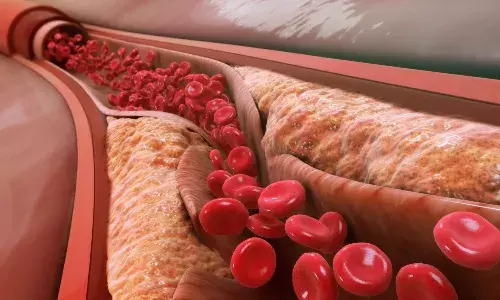
Reality: Ghee does not lead to the formation of plaque in arteries if taken in moderation. Ghee contains high-desnity lipoprotein (HDL) which is considered good cholesterol. According to Journal.plos.org, Good cholesterol (HDL) helps prevent plaque (atherosclerosis) by removing cholesterol from foam cells, and by limiting inflammatory processes that underline atherosclerosis.
Myth 4: Ghee can lead to heart diseases.
Reality: Ghee does not lead to heart disease if taken in moderation. According to WebMD, Ghee is a type of clarified butter high in healthy fat and contains a significant amount of monounsaturated Omega-3s.
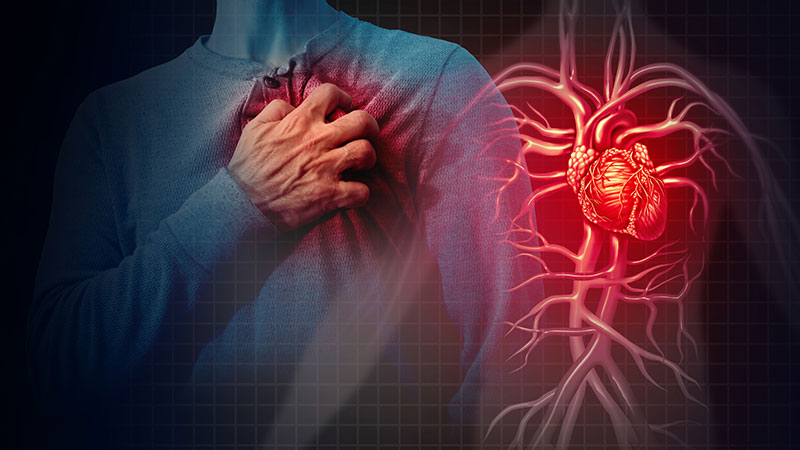
These fatty acids are known to be beneficial for maintaining a healthy heart and cardiovascular system. Research studies have suggested that incorporating ghee into a well-balanced diet can help to lower unhealthy cholesterol levels in the body.
Myth 5: Ghee is not good for health because it contains trans fats.
Reality: A big NO. Ghee is almost free of trans fat. It contains mostly healthy saturated fats that are good for heart health and nourish brain health. Ghee is a great source of health-friendly fatty acids such as Omega-3 fatty acids, Butyric Acid, and Conjugated Linoleic Acid (CLA).
Also Read:
- Best Desi Ghee Your Should Buy
- What is Gir cow A2 ghee & its benefits?
- A1 Ghee Vs A2 Ghee ghee – which is better?
Myth 6: Ghee is not good for diabetics peoples.
Reality: No, ghee is good for diabetics people. Combining ghee with other food items tends to lower the meal\’s glycemic index, which can help diabetic patients manage their blood sugar levels. Therefore, if you wonder whether a diabetic patient can eat ghee, the answer is yes. Adding a tablespoon of ghee to a diabetic patient\’s meal can greatly help in managing their blood glucose levels.
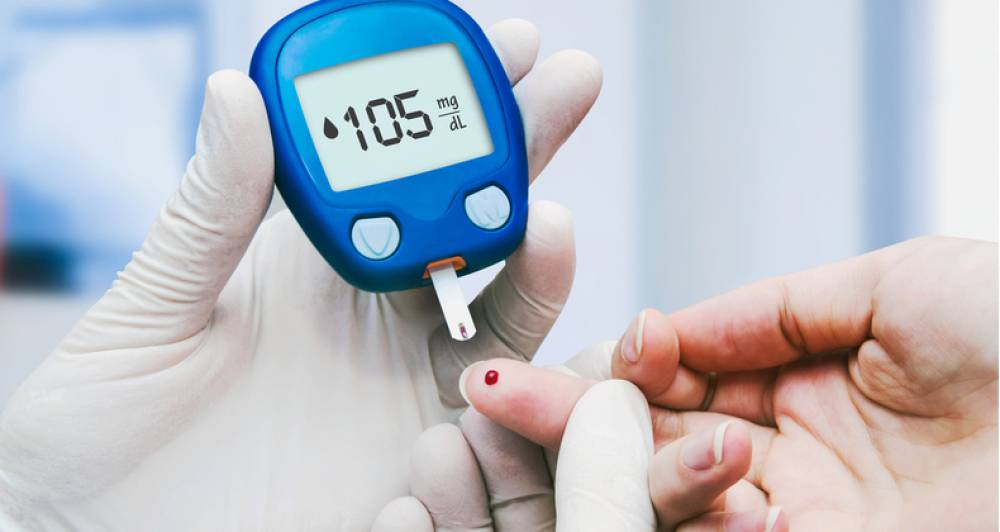
So these are some myths regarding desi ghee. These myths among people are due to misinformation spread by commercial ghee manufacturing companies to establish their product alternatives to desi ghee. But, in the above section, we have tried to expose all the myths and introduce you to the reality.
Conclusion
In conclusion, we can conclude that A2 ghee is cholesterol-friendly if taken in moderation. A2 ghee contains good cholesterol that collects and removes excess bad cholesterol from the body by passing it to the liver. There are various myths regarding ghee among people.
People think that ghee is not good for health. It is not good for the heart. It is not good for diabetic people. But the reality is something different than the rumours spread. According to scientific research, ghee is good for overall health if taken in moderation.
A2 Gir Cow Ghee
1 LTR
Best Price: ₹2125 with Coupons

A2 Gir Cow Ghee 2 Litre Combo Pack
Best Price: ₹4125 with Coupons
A2 Sahiwal Cow Ghee
1 LTR
Best Price: ₹1619 with Coupons

Frequently Asked Questions – FAQs
Does A2 ghee contain bad cholesterol?
No, A2 ghee does not contain bad cholesterol (LDL). It contains good cholesterol (HDL), which helps remove excess cholesterol from your bloodstream and transports it to the liver for elimination. Consuming A2 ghee in moderation can actually help balance cholesterol levels.
Can eating A2 ghee increase my cholesterol?
No, A2 ghee does not increase bad cholesterol (LDL) levels. In fact, it can help raise good cholesterol (HDL), which lowers the risk of heart disease. However, it’s important to consume ghee in moderation to maintain a healthy cholesterol balance.
Is A2 ghee bad for heart health?
A2 ghee is not bad for heart health if consumed in moderation. It contains healthy fats like Omega-3s and monounsaturated fats that support heart health. Research has shown that when included in a balanced diet, ghee can lower unhealthy cholesterol levels and contribute to cardiovascular well-being.
How much A2 ghee can I safely consume without affecting my cholesterol?
A tablespoon (14 grams) of A2 ghee contains around 40 mg of cholesterol. According to health guidelines, if you have no risk factors for heart disease, consuming up to 300 mg of cholesterol per day is considered safe. Just ensure you consume A2 ghee in moderation to avoid exceeding this limit.
Is A2 ghee suitable for people with diabetes?
Yes, A2 ghee can be beneficial for people with diabetes. When consumed in combination with other foods, it can lower the glycemic index of meals, helping manage blood sugar levels more effectively. Including a tablespoon of A2 ghee in meals may aid in better blood glucose control for diabetic patients.



